Related Research Articles

The Federalist Party was a conservative and nationalist American political party and the first political party in the United States. It dominated the national government under Alexander Hamilton from 1789 to 1801. The party was defeated by the Democratic-Republican Party in 1800, and it became a minority party while keeping its stronghold in New England. It made a brief resurgence by opposing the War of 1812, then collapsed with its last presidential candidate in 1816. Remnants lasted for a few years afterwards.

Thomas Woodrow Wilson was an American politician and academic who served as the 28th president of the United States from 1913 to 1921. A member of the Democratic Party, Wilson served as the president of Princeton University and as the governor of New Jersey before winning the 1912 presidential election. As president, Wilson changed the nation's economic policies and led the United States into World War I in 1917. He was the leading architect of the League of Nations, and his progressive stance on foreign policy came to be known as Wilsonianism.
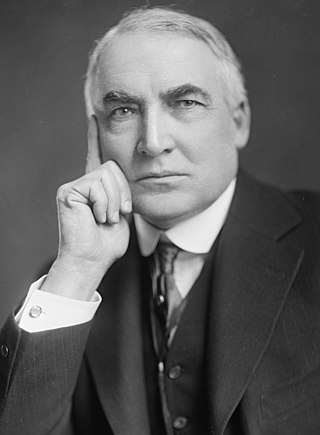
The 1920 United States presidential election was the 34th quadrennial presidential election, held on Tuesday, November 2, 1920. In the first election held after the end of the First World War and the first election after the ratification of the Nineteenth Amendment, Republican Senator Warren G. Harding of Ohio defeated Democratic Governor James M. Cox of Ohio. It was also the third presidential election in which both major party candidates were registered in the same home state; the others have been in 1860, 1904, 1940, 1944, and 2016.

Walter Lippmann was an American writer, reporter, and political commentator. With a career spanning 60 years, he is famous for being among the first to introduce the concept of the Cold War, coining the term "stereotype" in the modern psychological meaning, as well as critiquing media and democracy in his newspaper column and several books, most notably his 1922 Public Opinion.

Harper's Magazine is a monthly magazine of literature, politics, culture, finance, and the arts. Launched in New York City in June 1850, it is the oldest continuously published monthly magazine in the United States. Harper's Magazine has won 22 National Magazine Awards.
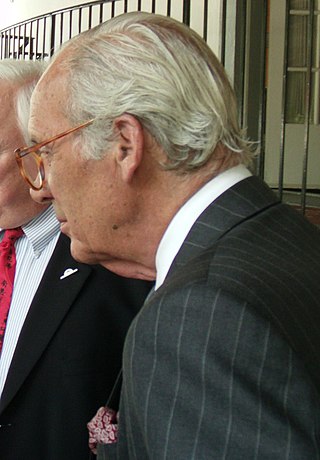
Lewis Henry Lapham is an American writer. He was the editor of the American monthly Harper's Magazine from 1976 until 1981, and from 1983 until 2006. He is the founder of Lapham's Quarterly, a quarterly publication about history and literature, and has written numerous books on politics and current affairs.

In the 1860s, the Copperheads, also known as Peace Democrats, were a faction of the Democratic Party in the Union who opposed the American Civil War and wanted an immediate peace settlement with the Confederates.

Jeffersonian democracy, named after its advocate Thomas Jefferson, was one of two dominant political outlooks and movements in the United States from the 1790s to the 1820s. The Jeffersonians were deeply committed to American republicanism, which meant opposition to what they considered to be artificial aristocracy, opposition to corruption, and insistence on virtue, with a priority for the "yeoman farmer", "planters", and the "plain folk". They were antagonistic to the aristocratic elitism of merchants, bankers, and manufacturers, distrusted factory workers, and strongly opposed and were on the watch for supporters of the Westminster system.

Harper's Weekly, A Journal of Civilization was an American political magazine based in New York City. Published by Harper & Brothers from 1857 until 1916, it featured foreign and domestic news, fiction, essays on many subjects, and humor, alongside illustrations. It carried extensive coverage of the American Civil War, including many illustrations of events from the war. During its most influential period, it was the forum of the political cartoonist Thomas Nast.
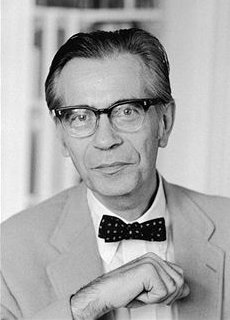
Richard Hofstadter was an American historian and public intellectual of the mid-20th century. Hofstadter was the DeWitt Clinton Professor of American History at Columbia University. Rejecting his earlier historical materialist approach to history, in the 1950s he came closer to the concept of "consensus history", and was epitomized by some of his admirers as the "iconic historian of postwar liberal consensus." Others see in his work an early critique of the one-dimensional society, as Hofstadter was equally critical of socialist and capitalist models of society, and bemoaned the "consensus" within the society as "bounded by the horizons of property and entrepreneurship", criticizing the "hegemonic liberal capitalist culture running throughout the course of American history".

The history of the United States from 1789 to 1815 was marked by the nascent years of the American Republic under the new U.S. Constitution.

The Black Tom explosion was an act of sabotage by agents of the German Empire, to destroy U.S.-made munitions that were to be supplied to the Allies in World War I. The explosions occurred on July 30, 1916, in New York Harbor, killing at least 7 people and wounding hundreds more. It also caused damage of military goods worth some $20,000,000. This incident, which happened prior to U.S. entry into World War I, also damaged the Statue of Liberty. It was one of the largest artificial non-nuclear explosions in history.
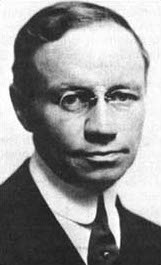
Herbert David Croly was an intellectual leader of the progressive movement as an editor, political philosopher and a co-founder of the magazine The New Republic in early twentieth-century America. His political philosophy influenced many leading progressives including Theodore Roosevelt, Adolph Berle, as well as his close friends Judge Learned Hand and Supreme Court Justice Felix Frankfurter.

The values and ideals of republicanism are foundational in the constitution and history of the United States. As the United States constitution prohibits granting titles of nobility, republicanism in this context does not refer to a political movement to abolish such a social class, as it does in countries such as the UK, Australia, and the Netherlands. Instead, it refers to the core values that citizenry in a republic have, or ought to have.
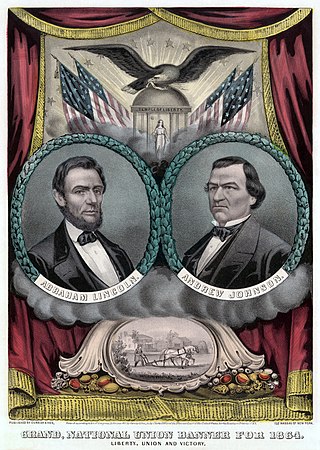
The National Union Party, commonly the Union Party or Unionists, was a wartime coalition of Republicans, War Democrats, and border state Unconditional Unionists that supported the Lincoln Administration during the American Civil War. It held the 1864 National Union Convention that nominated Abraham Lincoln for president and Andrew Johnson for vice president in the 1864 United States presidential election. Following Lincoln's successful re-election and assassination, Johnson tried and failed to sustain the Union Party as a vehicle for his presidential ambitions. The coalition did not contest the 1868 elections, but the Republican Party continued to use the "Union Republican" label throughout the period of Reconstruction.
Hamilton Fish V, also known as "Ham", is a U.S. publisher, social entrepreneur, environmental advocate, and film producer in New York City. He is currently the publisher and editor of the monthly independent political periodical The Washington Spectator.

The Fourth Party System was the political party system in the United States from about 1896 to 1932 that was dominated by the Republican Party, except the 1912 split in which Democrats captured the White House and held it for eight years.

Johnny Tremain is a 1957 American adventure drama film made by Walt Disney Productions, released by Buena Vista Distribution, and based on the 1944 Newbery Medal-winning children's novel of the same name by Esther Forbes, retelling the story of the years in Boston, Massachusetts prior to the outbreak of the American Revolution. Johnny Tremain was the first Disney live-action film to be directed by Robert Stevenson. It was made for television but was first released in theatres. Walt Disney understood the new technology of color television and filmed his Walt Disney anthology television series in color, but the show, known as Disneyland at that time, was broadcast in black and white. After its theater run in 1957, the film was shown in its entirety on television in two episodes, rather than as a complete film on a single evening, on November 21 and December 5, 1958.

Lapham's Quarterly is a literary magazine established in 2007 by former Harper's Magazine editor Lewis H. Lapham. Each issue examines a theme using primary source material from history. The inaugural issue "States of War" contained dozens of essays, speeches, and excerpts from historical authors ranging from Thucydides, William Shakespeare, and Sun Tzu to Mark Twain, among others. Recent issue themes included "Foreigners", "Time", and "Youth". Each issue includes an introductory essay by Lapham, readings from historical contributors, and essays by contemporary writers and historians.

Political eras of the United States refer to a model of American politics used in history and political science to periodize the political party system existing in the United States.
References
- ↑ Date information sourced from Library of Congress Authorities data, via corresponding WorldCat Identities linked authority file (LAF) .
- ↑ Century Association (New York, N.Y.) (1988). "The Century Yearbook". Yearbook. The Association. ISSN 1044-1751 . Retrieved 2015-04-13.
- ↑ New York Times obituary
- ↑ Quotes from Karp